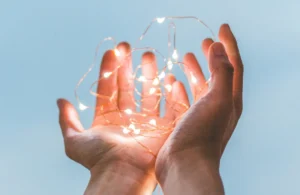Addiction or dependence is the urgent need for a substance (alcohol, drugs); or to perform a certain behavior (behavioral addictions such as gambling or pornography, or internet addiction), leading to unrestrained consumption and loss of freedom.
Addiction is a reflection of an inner emptiness that one wishes to fill. It can be a lack of love or a lack of meaning in life, which often go together.
In addiction, the anxiety or feeling of deep discomfort is tried to be extinguished with the search for an artificial paradise, made of drugs, illusory images or certain actions.
We speak of addiction when these elements are present:
- Tolerance: the need to increase more and more the amount of substance or the time of the addictive behavior, to produce the same calming or euphoriant effect.
- Dependence: the subjective impression that one cannot live without using.
- Craving: or anxious and excessive longing.
Dependence can be psychological, when there is a strong subjective discomfort if the substance is not obtained or a certain behavior is not performed.
It can also be physical, when there is an adaptation of the physiological organism to the substance, which manifests itself in physical symptoms and organic manifestations when the substance is not taken: this is referred to as withdrawal syndrome.
Theoretically, addiction differs from a vice or simple lack of freedom acquired by the repetition of bad actions.
In practice, pathological addiction often begins with “moderate consumption”. It is necessary to increase the frequency and intensity of the substances or images in order to feel good. It goes from vice to addiction.
How to deal with addictions
In addition to prevention, with a good education and counteracting social problems, it is advisable to seek medical assistance for an addicted patient or a patient with an impulse control disorder.
It is always advisable to give support and company to the person, helping them to discover the negative aspects of their dependence, as well as possible alterations in their personality.
A useful premise to help and prevent – it is almost a rule – is that dangerous habits are triggered in moments of sadness, tiredness and negative feelings.
Addictions are much less present when the person is happy, tries to have fun, is passionate about reading a good book, listening to music or playing sports and sharing their ideals with other friends.
At the beginning of the addiction, virtues play a fundamental role, in particular temperance. He who is not temperate suffers, feels pushed by contrary forces and is saddened by pleasures, both for not attaining them and for simply desiring them. He experiences the paradox of feeling pain because of pleasure.
That is why it is easier to help him discover the negative and absurd aspects of the path he is starting on.
The key to motivation to break addictions
It might be helpful (for the person) to make a list of the benefits they will gain as a result of cutting out that dangerous substance or activity, as is advised for quitting smoking, losing weight, acquiring healthy habits, or increasing activity in times of depression.
The more reasons to cut the addiction, the better. Motivation is the fundamental driver of change.
In more deeply rooted cases, support communities, which exist in many countries, are useful to facilitate the motivation of alcoholics and drug addicts, where people live together, with specific schedules and tasks, and can develop interests other than drugs or alcohol.
The support of family members and spiritual accompaniment that helps to rediscover and reaffirm one’s own value, the existence of a God who loves his creatures, is very useful.
The references to morality, that is to say to the evil of certain acts or certain consumptions is very important to get out of addictions. The recourse to this manifestation of spirituality is key, as demonstrated by the 12 steps of Alcoholics Anonymous, the most effective method to quit alcoholism.
Recommended reading: Wenceslao Vial, Madurez psicológica y espiritual, Palabra, 2019 (4th edition).
Learn more about addictions










0 Comments